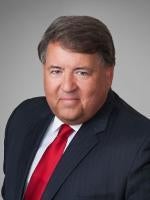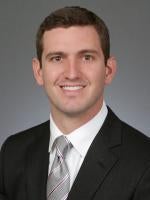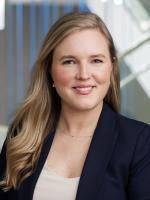The U.S. Supreme Court recently denied two certiorari petitions relating to the willfulness standard of the federal Anti-Kickback Statute, 42 U.S.C. § 1320a-7b (AKS), an issue with profound implications for health care companies and providers defending against AKS allegations.
On October 7, 2024, the Supreme Court denied the petition for certiorari in U.S. ex rel. Hart v. McKesson Corporation, and on October 15, 2024, denied the cert petition in Sayeed v. Stop Illinois Health Care Fraud, LLC.[1]
“Knowingly and Willfully”
The AKS prohibits persons from, among other things, “knowingly and willfully” soliciting or receiving “any remuneration (including any kickback, bribe, or rebate) directly or indirectly, overtly or covertly, in cash or in kind—
A. in return for referring an individual to a person for the furnishing or arranging for the furnishing of any item or service for which payment may be made in whole or in part under a federal health care program, or
B. in return for purchasing, leasing, ordering, or arranging for or recommending purchasing, leasing, or ordering any good, facility, service, or item for which payment may be made in whole or in part under a Federal health care program[.]”
The AKS is a criminal statute that can result in criminal and/or civil liability. A criminal offense under the AKS is a felony and carries a fine of up to $100,000 or imprisonment for not more than 10 years, or both. Violation of the AKS can result in civil liability under the federal False Claims Act (FCA) if a claim includes items or services resulting from an AKS violation, as well as liability under the Civil Monetary Penalties Law.
The AKS states in 42 U.S.C. § 1320a-7b(h) that “with respect to violations of this section, a person need not have actual knowledge of this section [of the AKS] or specific intent to commit a violation of this section [of the AKS].” This particular provision has been subject to litigation focusing on whether defendants must know that their behavior is unlawful in order to have violated the AKS.
Second Circuit: U.S. ex rel. Hart v. McKesson Corp.
In McKesson, the U.S. Court of Appeals for the Second Circuit affirmed the U.S. District Court for the Southern District of New York’s ruling that to act “willfully” in violation of the AKS, a defendant must act with the knowledge that the conduct is in some way “unlawful.”[2]
The case was brought by a former employee who alleged that McKesson violated the AKS by offering customers free access to two business management tools in order to induce those customers to purchase drugs from McKesson. The Second Circuit affirmed the district court’s dismissal of the lawsuit on the basis that the complaint did not plausibly allege that McKesson acted “willfully” under the AKS. In reaching its decision, the district court noted how the relator’s allegations were distinguishable from other instances where courts found the AKS willfulness standard to be met—such as taking “steps to conceal behavior,” having “notice that its sales practices might be unlawful,” ceasing offering the alleged kickback “out of a concern that doing so might be unlawful,” or demonstrating a belief that the alleged kickbacks were “shams.”[3]
The relator petitioned the Supreme Court to address the issue of whether acting “willfully” under the AKS requires that the defendant know its conduct violates the law.
Seventh Circuit: Sayeed v. Stop Illinois Health Care Fraud LLC
In Sayeed, the Seventh Circuit affirmed the U.S. District Court for the Northern District of Illinois in finding, following a bench trial, that the defendants knowingly and willfully violated the AKS and, by extension, the FCA.
The case was brought by relator Stop Illinois Health Care Fraud LLC and alleged that two in-home health care service providers, their parent company, and its owner, Asif Sayeed, engaged in a patient referral scheme with a nonprofit organization regarding low-income Medicare-eligible seniors in exchange for a monthly fee in violation of the AKS. The Northern District of Illinois’ decision, which initially granted defendants’ motion for judgment on partial findings, eventually entered judgment for the relator on remand after a second bench trial.
The Seventh Circuit affirmed the district court’s finding as to liability for all defendants, highlighting Sayeed’s testimony at trial that “he had spent over three decades in the healthcare industry and knew full well that it was illegal to buy protected health information.”[4]
Sayeed petitioned the Supreme Court to address the same issue that was raised in McKesson—whether acting “willfully” requires knowledge that the conduct at issue is unlawful.
Disagreement on Existence of a Circuit Split
Interestingly, the parties in McKesson fundamentally disagreed as to whether a circuit split exists on “willfully” requiring that a defendant know its conduct violates the law.[5]
On one hand, the relator contended that the Second Circuit’s position “joined at least the Eleventh Circuit, but split with the Fifth and Eighth Circuits.” On the other hand, McKesson contended that no such circuit split exists and that, at most, there is a shallow “intra-circuit” split within the Fifth Circuit.
The Second Circuit in McKesson cited harmonious “sister circuit” opinions from the Third, Fifth, Sixth, Seventh, Eighth, and Eleventh Circuits as all having “held or implied that to be liable under the AKS, defendants must know that their particular conduct was wrongful.”[6]
Looking Ahead
While parties to the recent cases addressing this issue generally appear in agreement that violation of a known legal duty is sufficient to establish willfulness under the AKS, there is significant disagreement as to whether such a showing is required to establish that component or whether something less is warranted under the statute. With the Supreme Court declining to weigh in on this issue, we expect that future appellate decisions will provide additional clarity on the AKS willfulness standard and whether they are following or departing from other recent appellate decisions on the issue.
Epstein Becker Green Attorney Ann W. Parks contributed to the preparation of this post.
ENDNOTES
[1] See Case No. 23-1293 and Case No. 24-235.
[2] 96 F.4th 145, 162 (2d Cir. 2024).
[3] Id.
[4] 100 F.4th 899, 905 (7th Cir. 2024).
[5] The petitioner (Sayeed) in Sayeed did not address a circuit split in detail and the respondent (Stop Illinois Health Care Fraud LLC) waived its right to file a response.
[6] 96 F.4th 145, 154-55 (2d Cir. 2024).






 />i
/>i
